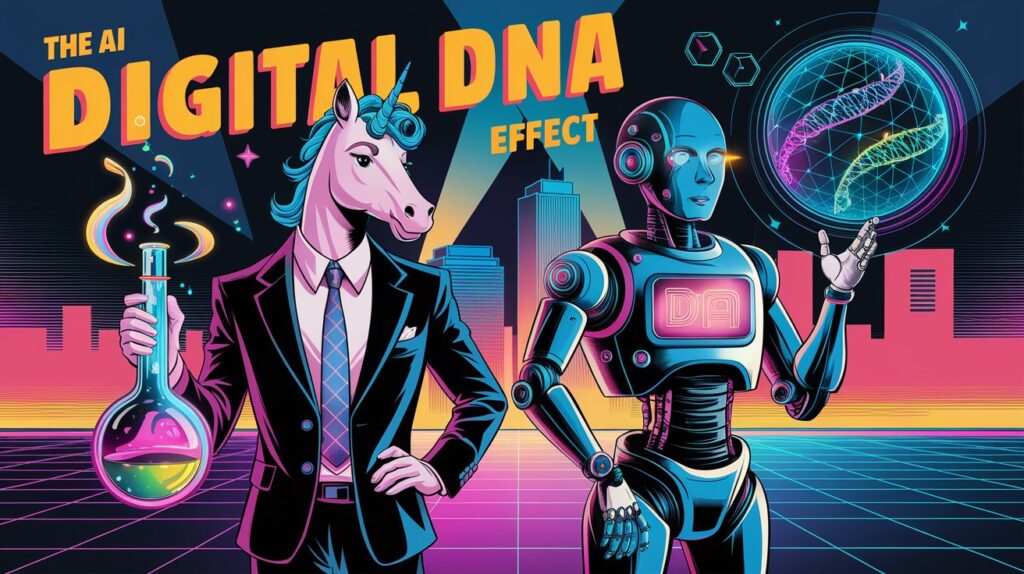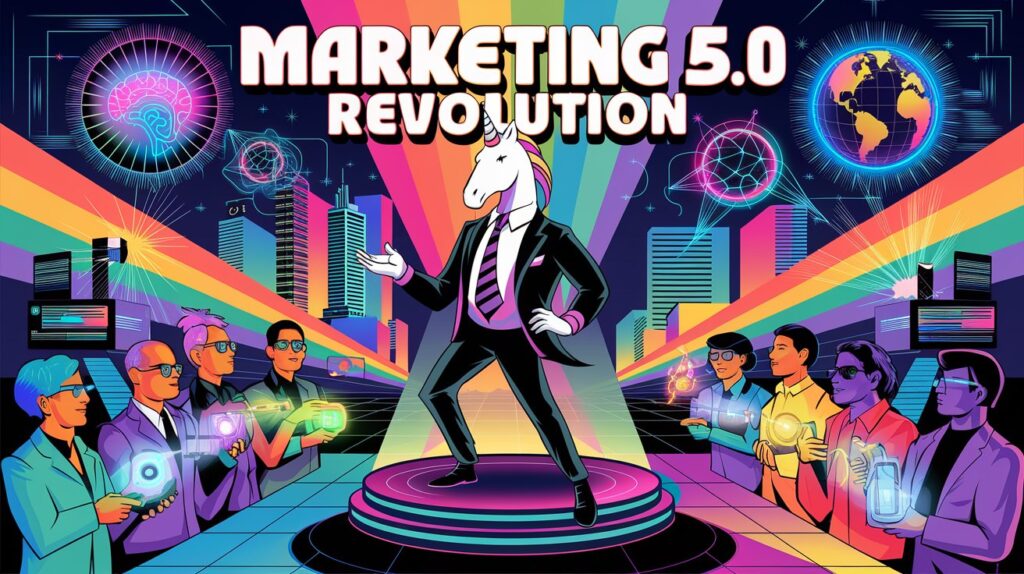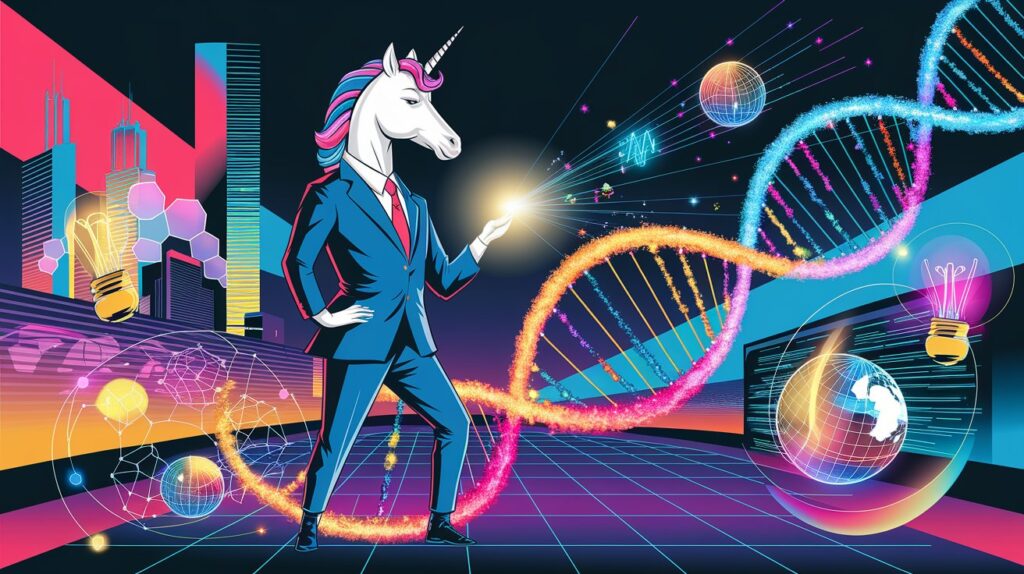
Picture walking into a store that knows you better than your best friend. Or opening an app that anticipates your needs before you do. This isn’t science fiction – it’s what happens when artificial intelligence becomes part of a company’s DNA.
Welcome to The AI Digital DNA Effect.
According to groundbreaking research in Marketing 5.0: Technology for Humanity, we’re witnessing something unprecedented. Companies aren’t just using AI; they’re evolving with it, letting it become part of their fundamental structure – their digital DNA.
 A New Species of Marketing
A New Species of Marketing

Think of it as corporate evolution in action. Just as life evolved from simple cells to complex organisms, marketing has transformed through three distinct generations.
What started with basic human connections (Marketing 3.0) evolved to include digital elements (Marketing 4.0), and has now reached a new stage of evolution where AI and human elements intertwine perfectly (Marketing 5.0).
The most fascinating discovery?
Companies trying to simply add AI as a feature are being outperformed by those who’ve let it become part of their organizational genetics. It’s the difference between wearing a prosthetic limb and growing a natural one.
 The Building Blocks of Digital DNA
The Building Blocks of Digital DNA

Take Bank Central Asia (BCA) for example. Their AI chatbots aren’t just tools bolted onto their customer service – they’re more like a new organ evolving to better serve their customers. These bots instinctively know when to handle queries themselves and when to pass them to their human counterparts, creating a seamless organism of service.

Or look at IKEA’s AR app. It wasn’t forced into existence; it evolved naturally to solve a fundamental customer need. Like the way birds developed wings for flight, IKEA developed AR to help customers visualize furniture in their spaces. It’s not technology for technology’s sake – it’s a natural adaptation to meet a real need.

 The New Marketing Genome
The New Marketing Genome

This evolution is happening across every aspect of business. Products are developing their own intelligence, learning and adapting to users over time. Customer relationships are growing more organic, with AI enabling natural, intuitive interactions. Organizations themselves are evolving, developing new capabilities that blend human insight with artificial intelligence.
Consider Epic Games’ Fortnite, which has evolved beyond being just a game into an entirely new species of entertainment. It’s a game, a social platform, and a marketplace all at once – not because these features were added, but because they evolved naturally from understanding what players want.

 When Evolution Meets Innovation
When Evolution Meets Innovation

The companies thriving in this new era share a common trait: they’ve allowed AI to become as natural as breathing. It’s not about having the most advanced technology – it’s about making that technology an inseparable part of who they are.
Google’s products demonstrate this perfectly. Their AI isn’t just a feature; it’s woven into everything they do, constantly learning, adapting, and evolving to serve users better. It’s become part of their digital DNA.

Here are 3 concrete ways to leverage the AI Digital DNA Effect:
- Develop Natural AI Integration: Like BCA’s chatbots, integrate AI in a way that feels organic to your business operations – it should smoothly handle routine tasks while intelligently knowing when to involve human team members, rather than feeling like a bolted-on solution.
- Evolve Products with AI Learning: Follow IKEA’s example by creating products that naturally solve customer problems with AI. Rather than adding AI features because they’re trendy, develop AI capabilities that address genuine customer needs and improve over time through usage.
- Create Adaptive Ecosystems: Take inspiration from Fortnite’s evolution by allowing your platforms or services to grow organically based on user behavior and AI insights. Instead of rigid structures, build systems that can naturally expand and adapt to serve multiple user needs simultaneously.
 The Evolution Continues
The Evolution Continues
The research from Harvard Business Review’s Digital Transformation insights shows us that success in the age of AI isn’t about technological sophistication – it’s about natural integration. The winners aren’t those who use AI the most, but those who’ve made it an inseparable part of their organizational DNA.
As we look to the future, one thing is clear: in a world where every company has access to AI, the real differentiator will be how naturally it flows through an organization’s veins.

 The AI Digital DNA Effect: How AI is Rewriting Marketing’s Genetic Code
The AI Digital DNA Effect: How AI is Rewriting Marketing’s Genetic Code The Persuasive Wordplay Effect: Unlocking the Magic of Influential Language
The Persuasive Wordplay Effect: Unlocking the Magic of Influential Language
Leave a Reply